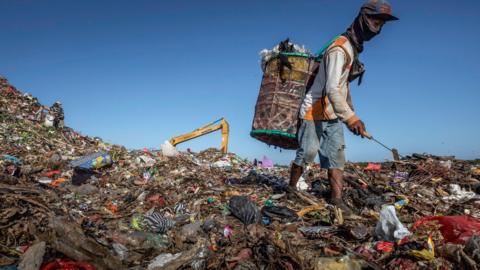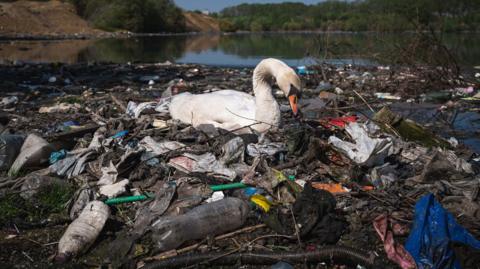In 2022, the world's nations agreed that a global treaty was needed to tackle the issue of plastic pollution particularly the impacts on the marine environment - and this should be completed within two years given the urgency of the issue.
Since 1950, more than eight billion tonnes of plastic have been produced globally but less than 10% has been recycled, estimates the United Nations.
This has led to millions of tonnes entering the world's oceans and seas, posing serious risks to wildlife and their environment. Birds, fish and whales can become injured or killed if they become entangled in plastic debris or mistakenly ingest it, leading to starvation.
Plastic is also produced from fossil fuels, and is currently estimated to be responsible for 5% of global emissions - so efforts to restrict it could also help with efforts to tackle climate change.
The meeting in Busan, South Korea, was meant to be the final fifth round of negotiations but after late night talks countries were unable to resolve their differences missing their key two-year deadline.
"A few critical issues prevent us from reaching a comprehensive agreement," said the talks' chair Luis Vayas Valdivieso on Sunday - the final day of talks.
Although many issues are being discussed the key split is around Article 6 - whether there should be a commitment to cutting how much plastic is produced, or just try and reduce plastic waste by increasing efforts to recycle.

